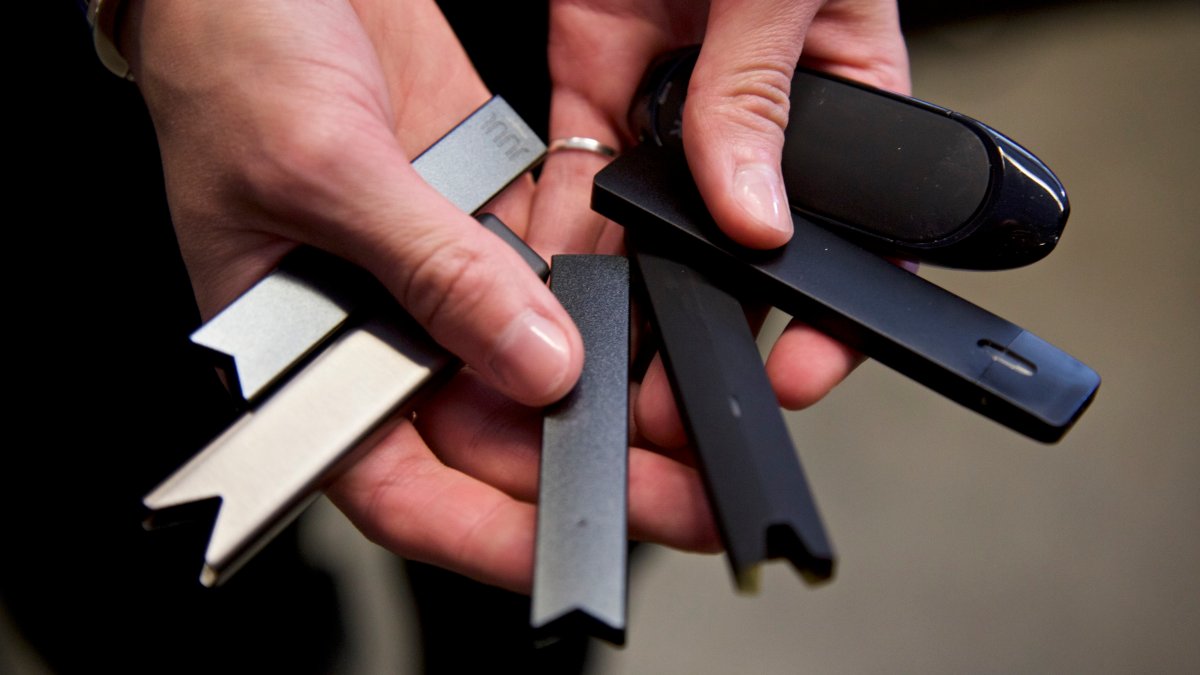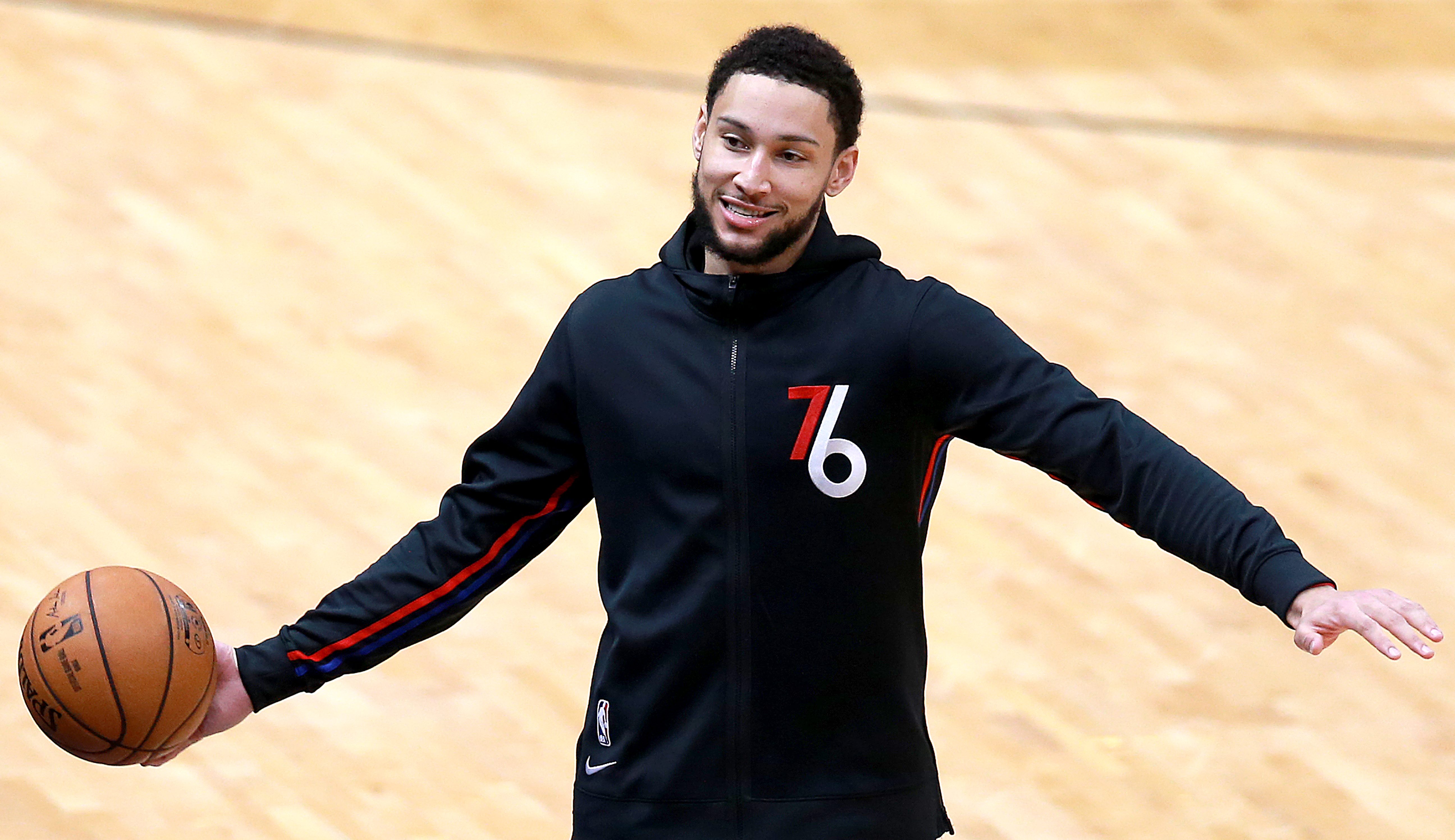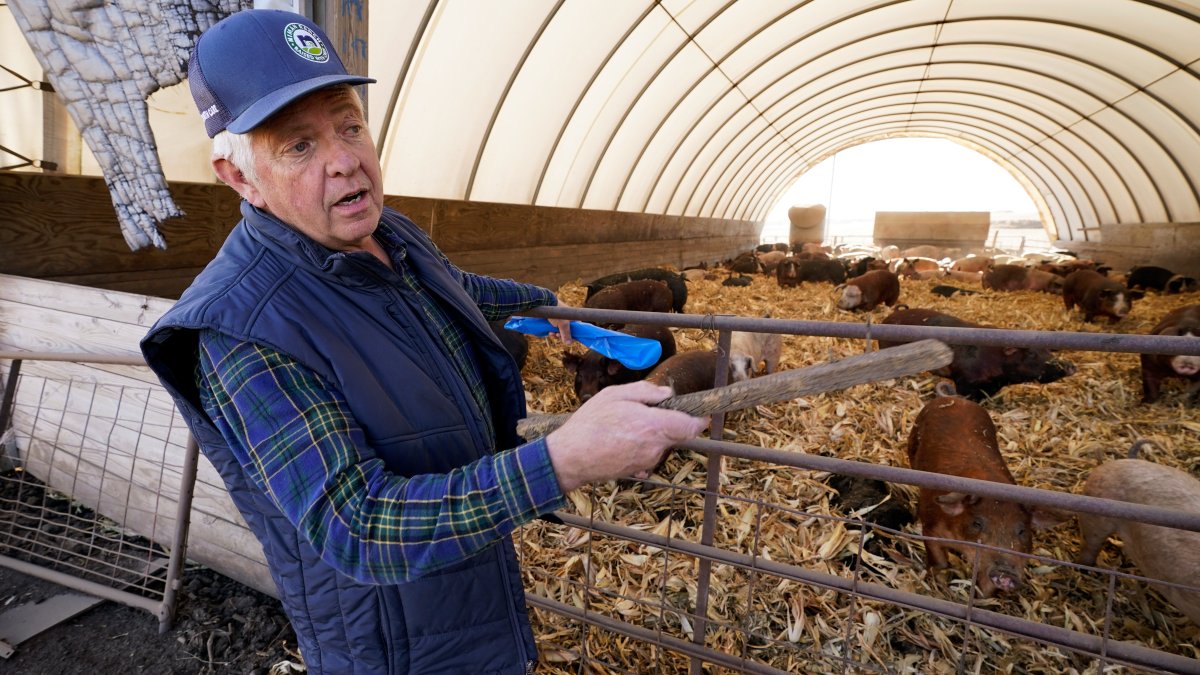Federal well being officers on Thursday delayed a high-risk resolution on whether or not to permit top-selling vaping model Juul to stay available in the market whereas the sale of hundreds of different digital cigarettes is banned.
The Meals and Drug Administration mentioned it had denied purposes for practically 950,000 e-cigarettes and associated merchandise, largely attributable to their potential attraction to underage teenagers. A number of the merchandise are at the moment being bought whereas many others had been solely supplied by producers. However the company did not determine on Juul, the most well-liked model amongst grownup people who smoke and lots of youngsters.
Dad and mom, politicians, and tobacco management advocates have for years pressured the FDA to ban Juul’s nicotine-rich units, which many blame for the current surge in underage vaping. However the company mentioned it might take extra time to determine on this firm’s merchandise.
“A lot stays to be executed to finish our remaining opinions and be sure that we proceed to take enough measures to guard our nation’s youth from the risks of all tobacco merchandise, together with e-cigarettes,” the company mentioned in a press release . The company discovered that 80% of youngsters and kids who vape use flavored merchandise.
Thursday’s motion is a part of a complete evaluation by the FDA to scientifically look at the multi-billion greenback steam trade after years of regulatory delays. The company has not but authorized a vapor product as a much less dangerous possibility for people who smoke.
The FDA confronted a court docket deadline Thursday to make choices on advertising proposals from Juul and a whole lot of different corporations. The date was set by a federal choose after anti-tobacco teams efficiently sued the FDA to expedite its evaluation.
To remain available in the market, corporations have to exhibit that their e-cigarettes are good for public well being. In apply, this implies proving that grownup people who smoke utilizing the merchandise are more likely to give up or lower down on smoking, whereas youngsters are unlikely to turn out to be addicted.
FDA regulators beforehand mentioned they’d prioritize Juul and a handful of different key gamers, however none had been included within the company’s announcement.
The delay was instantly skewed by anti-vaping teams.
“That is an outrageous transfer by the FDA,” mentioned Meredith Berkman, co-founder of Dad and mom Towards Vaping e-cigarettes. “Hundreds of thousands of households whose youngsters’s lives have been turned the other way up by the youth vaping epidemic brought on by Juul have waited lengthy sufficient for motion.”
The FDA hasn’t specified when it’d determine on Juul and different main producers. Matthew Myers, president of the Marketing campaign for Tobacco-Free Children, mentioned his group would go to court docket if the FDA didn’t specify its timing for the remaining choices.
E-cigarettes first appeared within the US greater than a decade in the past with the promise of offering people who smoke with a much less dangerous different to smoking conventional tobacco cigarettes. The units warmth a nicotine resolution right into a vapor that’s inhaled.
Nevertheless, little analysis has been executed on whether or not e-cigarettes truly assist people who smoke give up smoking. And the FDA’s efforts to evaluation vapor merchandise and their claims have been repeatedly hampered by trade lobbying and competing political pursuits.
Immediately the vape market consists of a whole lot of corporations promoting a variety of units and nicotine options in quite a lot of flavors and strengths. However the overwhelming majority of the market is managed by just a few corporations, together with Juul Labs Inc. – which is partly owned by tobacco big Altria – and Vuse, a part of cigarette maker RJ Reynolds.
Juul accounts for practically half of the $ 4 billion market, however gross sales have declined sharply for the reason that firm managed greater than 75%. In 2019, the corporate was pressured to cease promoting and to drag all of its flavors besides menthol and tobacco.
The FDA has obtained purposes for greater than 6 million vape merchandise. The company introduced Thursday that it had taken motion on 93% of these requests, together with 4.5 million merchandise that had been instantly rejected as a result of they lacked vital data.
It’s nonetheless inspecting a smaller variety of purposes for different non-traditional tobacco merchandise comparable to hookahs, pipes and mini cigars. These merchandise weren’t lined by the unique 2009 legislation, which initially gave the FDA the facility to supervise some elements of the trade, together with the evaluation of recent merchandise. Additionally ready to be checked: bigger vaping units with refillable tanks, that are particularly in style with adults and are bought in particular vape retailers.
The topic of vaping gained renewed urgency in 2018 when Juul’s fruity-flavored, nicotine-rich cartridges turned a nationwide pattern amongst center and highschool college students, main the FDA to declare an “epidemic” of vaping amongst minors. Final 12 months the FDA restricted the flavors in these tiny vaping units to tobacco and menthol, and teenage vaping decreased. However the query of whether or not e-cigarettes must be bought in any respect remained.
Most specialists agree that the chemical compounds in e-cigarette vapor are much less dangerous than tobacco smoke, which incorporates hundreds of cancer-causing chemical compounds.
“E-cigarettes and different lowered hurt merchandise are a improbable alternative to interchange cigarettes with far much less harmful merchandise,” mentioned Jonathan Foulds, an dependancy and public well being specialist at Penn State College. “However I fear that this might be the start of overly aggressive regulation on e-cigarettes – particularly in comparison with how we deal with common cigarettes.”
___
The Related Press Well being and Science Division is supported by the Howard Hughes Medical Institute’s Division of Science Schooling. The AP is solely answerable for all content material.














